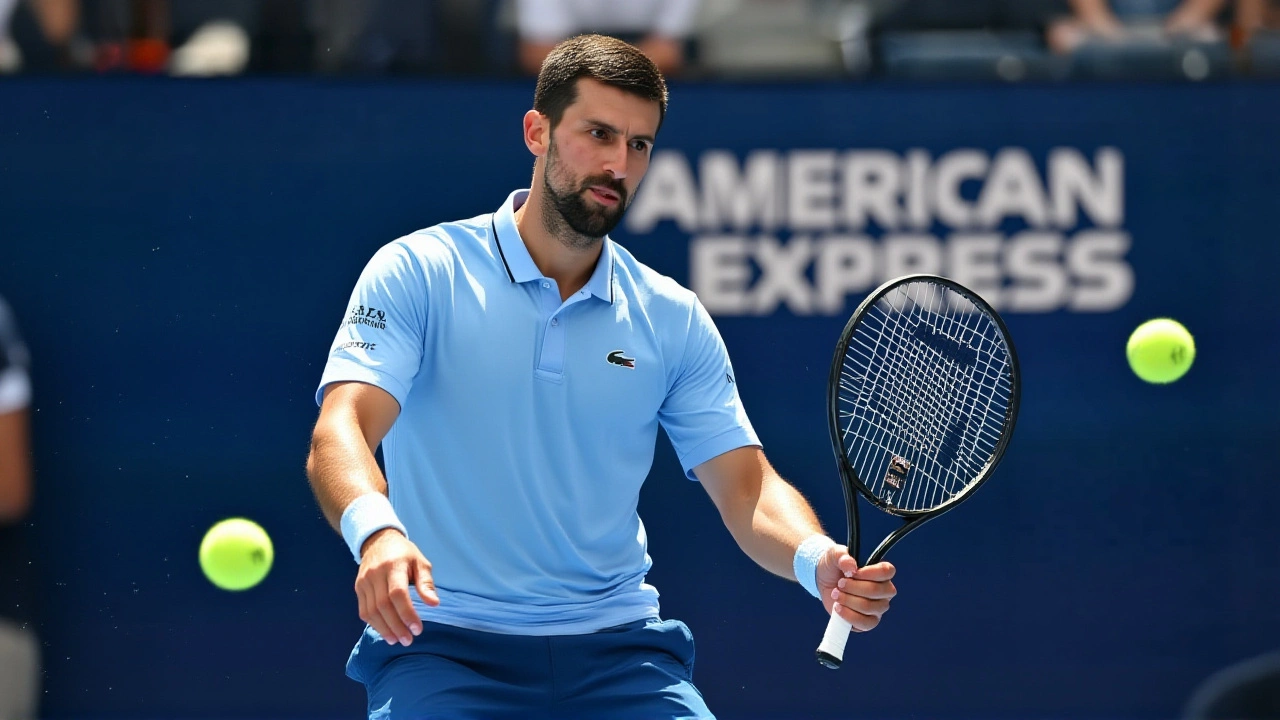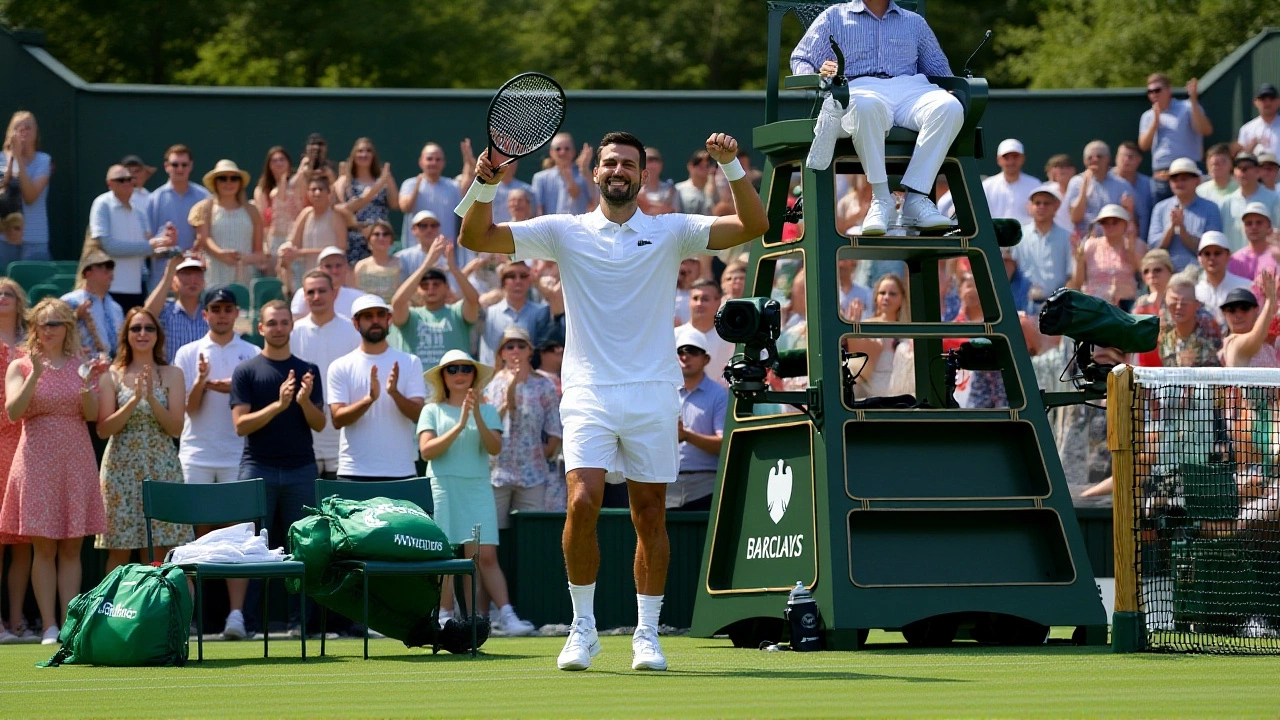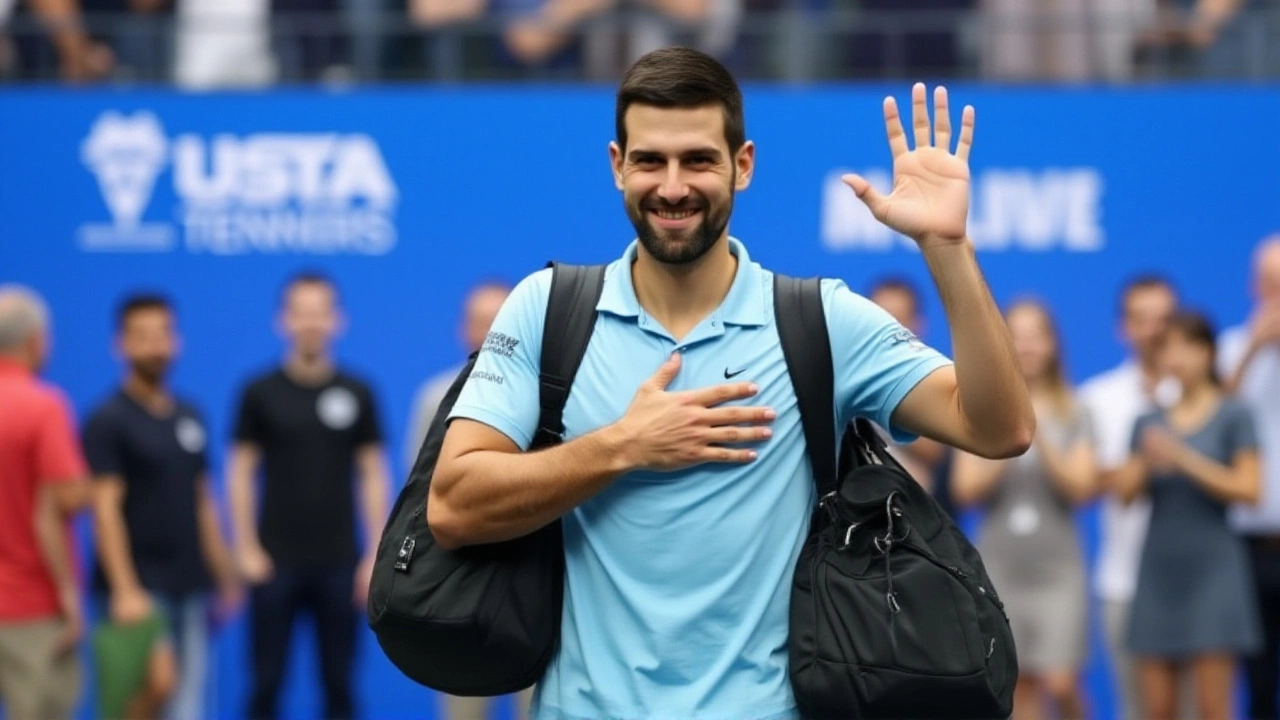Novak Djokovic decries marijuana odor at 2025 US Open, Ruud protests
 Oct, 7 2025
Oct, 7 2025
When Novak Djokovic, tennis champion of Serbia stepped off the court after his straight‑sets win over American qualifier Zachary Svajda, he didn’t just celebrate the scoreline – he called attention to the pervasive marijuana odor drifting across the grounds.
His remarks came during the second round of US Open 2025Flushing Meadows, New York’s sprawling tennis mecca, where players and fans alike have been hit by the lingering scent for weeks.
Background: New York’s Marijuana Legal Landscape
In March 2021 New York legalized adult use of marijuana, allowing anyone 21 or older to carry up to three ounces of flower or 24 grams of concentrate. While smoking and vaping are banned inside indoor venues, the state’s open‑air policy means that smoke can travel on the wind, especially in a place as expansive as Flushing Meadows.
Legal experts point out that the law does not give event organizers the authority to prohibit outdoor consumption beyond the tournament’s own property lines. As a result, the aroma can waft from nearby streets, parking lots and even neighboring parks onto the hard‑court and grass surfaces where the athletes compete.
Players’ Complaints and On‑Court Impact
"You can definitely feel it, it’s not like you can’t," Djokovic said, eyes narrowed after the match. "Some people are more bothered, some less. I’m not a fan of that smell either, actually, it’s a stench. But it’s allowed here, and somehow you just have to accept it the way it is."
The Serbian star, a 24‑time Grand Slam winner, added that the odor distracts him more than any crowd noise. "When you’re trying to solve the riddle of your game, the last thing you want is a cloud of weed smoke in your lungs," he explained.
Casper Ruud, Norwegian tennis pro echoed those sentiments earlier in the tournament during mixed doubles play. "It’s quite annoying to be playing, tired, and just metres away someone is smoking marijuana," Ruud said. "For me, this is the worst thing about New York. The smell is everywhere, even here on the courts. We have to accept it but it’s not my favourite smell."
Both players noted that the legal framework leaves them powerless. "We can’t do anything unless the law is reversed, and I have strong doubts that will happen," Ruud added, underscoring the frustration felt by many athletes who travel worldwide for competition.
US Open’s Legal Constraints
The United States Tennis Association (USTA) issued a brief statement acknowledging the complaints. "We respect New York State law and the right of adults to possess marijuana," the spokesperson said. "While indoor smoking is prohibited on our courts, the open‑air nature of the venue means we cannot control emissions from outside the perimeter."
Event officials argue that any stricter enforcement would require coordination with city police and could spark legal challenges. As a result, the tournament’s hands are tied, and players are left to adapt.

Historical Echoes: Kyrgios and Past Incidents
This isn’t the first time the scent has made headlines. In 2022, Australian firebrand Nick Kyrgios complained during his match against France’s Benjamin Bonzi. "It’s not just a nuisance; it’s a health issue for people with asthma," Kyrgios argued, urging fellow players to consider the broader impact.
His outburst sparked a brief social‑media debate, but no policy change followed. The recurring nature of the issue suggests that the US Open may need to revisit its approach as marijuana use becomes more normalized across the country.
Expert Opinions and Possible Solutions
Sports medicine specialists say that secondhand marijuana smoke can affect lung function, especially in high‑intensity cardio activities like tennis. Dr. Elaine Patterson, a pulmonologist at Columbia University, noted, "While the THC concentration in ambient air is low, repeated exposure during long matches could aggravate respiratory conditions and even affect focus."
Some venues have installed air‑filtration barriers or designated “smoke‑free zones,” though such infrastructure would be costly for a sprawling outdoor complex. Others propose tighter coordination with city authorities to enforce a wider buffer zone around the tournament perimeter during match days.
Meanwhile, players have turned to practical workarounds: wearing moisture‑wicking headbands to minimize inhalation, using personal respirators during practice, or simply timing practice sessions when wind direction pushes the scent away.

What This Means for Future Tournaments
If New York’s marijuana laws remain unchanged, the US Open may become a case study for how major sporting events coexist with evolving drug policies. Organizers could face pressure from sponsors and broadcasters who prefer a neutral sensory environment.
For now, the smell remains an “unwelcome fixture,” as one insider described it, reminding athletes that the off‑court legal landscape can be just as challenging as the on‑court opponent.
- Novak Djokovic and Casper Ruud publicly criticized the pervasive smell.
- New York law permits adult possession of up to three ounces.
- US Open officials cite legal constraints as the barrier to stricter enforcement.
- Previous complaints include Nick Kyrgios in 2022.
- Medical experts warn of potential respiratory impacts for athletes.
Frequently Asked Questions
How does the marijuana odor affect players during matches?
The scent can irritate the eyes and throat, reduce oxygen intake, and distract concentration. Players with asthma or other respiratory conditions may experience heightened discomfort, potentially influencing performance on fast‑moving points.
What legal options does the US Open have to curb the smell?
Because New York’s law protects adult consumption in public spaces, the tournament can only enforce indoor smoking bans. To limit outdoor drift, organizers would need city cooperation to create a larger smoke‑free perimeter, which would require new ordinances or temporary restrictions.
Has any other major sporting event faced similar issues?
Yes. In 2023 the NBA’s New York Knicks reported occasional weed smoke complaints during outdoor practices at the Bronx Coliseum. European football stadiums in the Netherlands have also grappled with the scent during summer tournaments after cannabis legalization there.
What are players doing to protect themselves?
Many athletes now schedule practice sessions when prevailing winds blow away the odor, use breathable face masks during warm‑ups, and carry portable air‑purifying devices. Some have also spoken to tournament officials to request dedicated smoke‑free zones for pre‑match routines.
Will the US Open change its policies in future editions?
It’s uncertain. Any policy shift would depend on legislative changes in New York or a new agreement with city authorities. Until then, the tournament is likely to continue navigating the delicate balance between legal rights and player comfort.